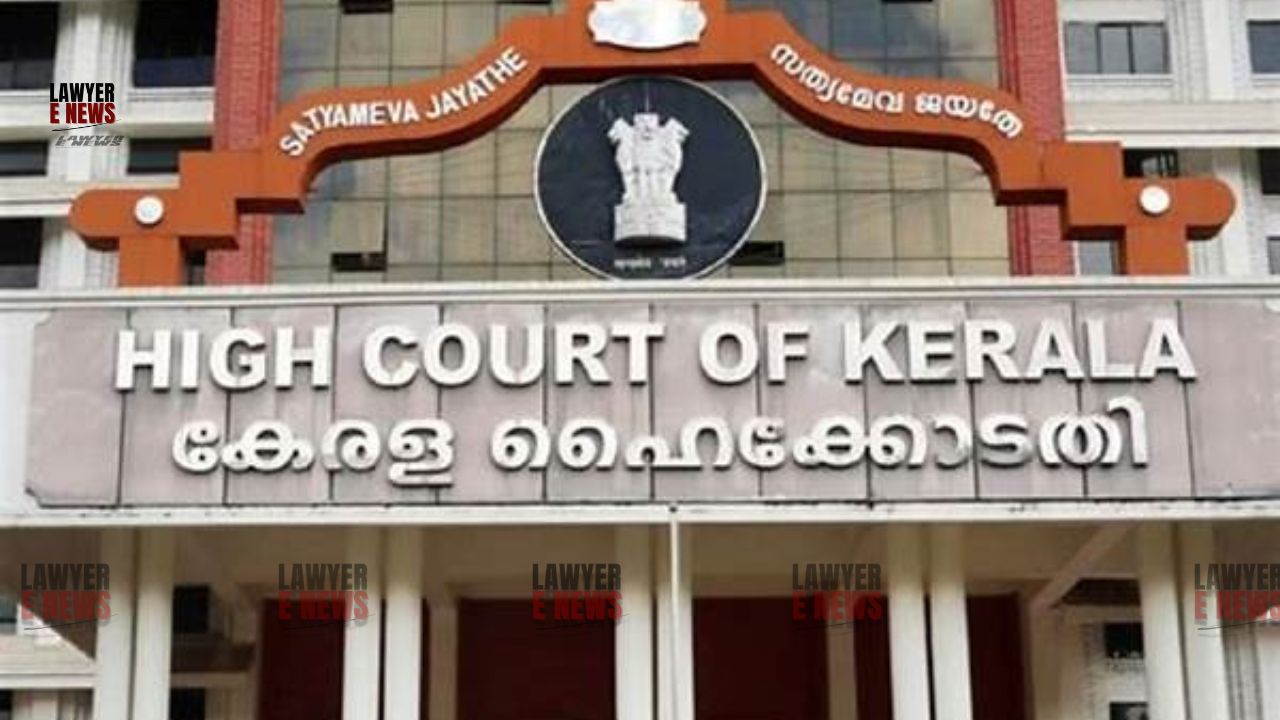-
by Admin
15 February 2026 5:35 AM



Kerala High Court upheld the conviction of two individuals, Rajesh and Ajeesh, for the murder of Vishnu and causing grievous injuries to Anoop, along with robbery, under Sections 302, 307, and 394 read with Section 34 of the Indian Penal Code. The court, however, modified the sentence of the second appellant, Ajeesh, after confirming his juvenility at the time of the offense, in accordance with the Juvenile Justice (Care and Protection of Children) Act, 2000.
While affirming the life sentence for the first appellant, Rajesh, the court reduced the sentence of the second appellant to three years, noting that his incarceration had already exceeded the statutory maximum for juveniles.
The case stemmed from the murder of Vishnu and injuries caused to Anoop on the night of June 15, 2008, at a residence in Thrissur where both the accused and the victims resided. The prosecution alleged that the accused stabbed Vishnu to death, attacked Anoop with a knife and brick, and robbed their belongings.
Following the trial, the Additional Sessions Judge-III, Thrissur, convicted both appellants and sentenced them to life imprisonment. During the appeal, the second appellant, Ajeesh, raised the issue of juvenility, leading the High Court to conduct an inquiry and confirm that he was a minor at the time of the offense.
Credibility of Injured Witness Evidence Upheld
The court relied heavily on the testimony of the injured witness, Anoop (PW8), who provided a detailed account of the events. Justice P.B. Suresh Kumar noted:
“The testimony of an injured witness is accorded a special status in law. Such a witness comes with a built-in guarantee of his presence at the scene of the crime and is unlikely to spare his actual assailants to falsely implicate someone else.”
The court dismissed the defense argument that the injuries were caused by a fight between Vishnu and Anoop, stating there was no evidence to support this claim.
"Other Witnesses and Circumstantial Evidence Corroborate PW8's Testimony"
The injured witness's testimony was corroborated by multiple witnesses:
PW3 and PW5 (landlord and supervisor): Testified that Vishnu called them before the incident, reporting the accused's disruptive behavior.
PW7 and PW10 (local shopkeepers): Confirmed seeing the accused heading toward the residence on the night of the incident.
PW13 (auto driver): Stated that he transported the accused early the next morning.
The court noted that this corroboration, coupled with medical and scientific evidence, strengthened the prosecution's case.
A knife (MO7) recovered from the second appellant was found to contain human blood. While the origin of the blood could not be conclusively linked to the victims, the court held that medical evidence proved the injuries were consistent with the weapon.
Referring to State of Rajasthan v. Teja Ram (1999 KHC 1081), the court stated:
“Failure to determine the origin of blood does not render the recovery of a weapon inconsequential if other evidence supports its use in the crime.”
The court confirmed that the second appellant was a juvenile under Section 7A of the Juvenile Justice Act, 2000, at the time of the offense. As per Section 16 of the Act, juveniles cannot be sentenced to more than three years in custody. The court cited Om Prakash v. Union of India, 2025 SCC OnLine SC 47, stating:
“The sentence of a juvenile exceeding three years is unsustainable and must be reduced accordingly.”
The court noted that Ajeesh had already served more than three years in incarceration and ordered his release, modifying his sentence while affirming the conviction.
First Appellant (Rajesh): Conviction and life sentence under Sections 302, 307, and 394 IPC upheld.
Second Appellant (Ajeesh): Conviction upheld; sentence reduced to three years due to juvenility. Ajeesh was ordered to be released due to time already served.
This judgment underscores the weight given to injured witness testimony and the court's duty to assess evidence comprehensively, especially when corroboration exists. It also highlights the legal protections afforded to juveniles under the Juvenile Justice Act, ensuring no excessive punishment beyond statutory limits.
Date of Decision: January 22, 2025
